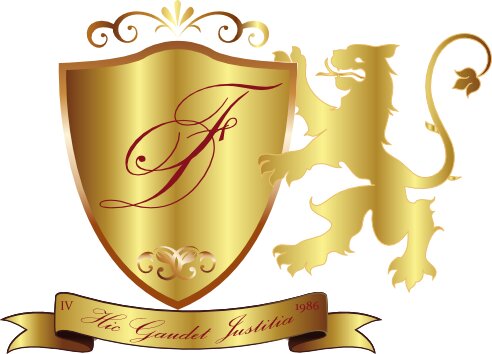Best Bankruptcy & Debt Lawyers in Turin
Share your needs with us, get contacted by law firms.
Free. Takes 2 min.
List of the best lawyers in Turin, Italy
Italy Bankruptcy & Debt Legal Articles
Browse our 1 legal article about Bankruptcy & Debt in Italy written by expert lawyers.
- Overwhelmed by Debt in Italy? Crisis - Legge 3/2012 Reform
- Italy allows individuals and small non-fallible businesses to wipe out or heavily cut debts using esdebitazione procedures under the Codice della crisi d'impresa e dell'insolvenza (CCII), often still called the "Save-Suicide Law". The Consumer Plan (Piano del Consumatore) is only for private individuals acting as consumers, not for entrepreneurs, and... Read more →
About Bankruptcy & Debt Law in Turin, Italy
Bankruptcy and debt law in Turin, Italy, is a branch of civil law aimed at managing situations where individuals or businesses are unable to meet their financial obligations. Turin, being a major economic and industrial center in Italy, sees a variety of insolvency and debt-related issues among both private citizens and companies. The legal system in Italy provides structured pathways for debt resolution, including mediation, restructuring, and, when necessary, formal bankruptcy proceedings before a specialized court. The objective is both to protect the rights of creditors and to offer debtors a fair chance at a financial fresh start.
Why You May Need a Lawyer
Dealing with bankruptcy and debt issues can be complex and stressful, often involving numerous creditors, legal procedures, and significant financial implications. You may need a lawyer if you find yourself:
- Unable to pay personal or business debts when they are due
- Receiving threats of legal action or foreclosure from creditors
- Facing asset seizure or wage garnishment
- Needing to restructure or negotiate existing debts
- Involved in disputes over contracts or loan agreements
- Seeking to protect assets within insolvency proceedings
- Considering or being forced into bankruptcy (fallimento) by creditors
Local Laws Overview
Italy’s bankruptcy and debt laws are primarily governed by the Italian Bankruptcy Law (Legge Fallimentare), which has been updated several times to reflect economic changes and EU directives. Proceedings related to insolvency are generally handled by the Tribunale delle Imprese (Business Court) of Turin.
Key aspects relevant to Turin include:
- Procedures: There are several forms of insolvency procedures, including fallimento (bankruptcy), concordato preventivo (preventive arrangement with creditors), and liquidazione coatta amministrativa (compulsory administrative liquidation).
- Eligibility: Both individuals and companies may apply for or be subjected to bankruptcy, though certain size and turnover thresholds apply for businesses.
- Debtor Protections: Legal mechanisms exist to negotiate and restructure debts, which may help avoid full bankruptcy. Consumer debt may be treated differently from business debts.
- Role of Creditors: Creditors can petition the court to open insolvency procedures if debts are unpaid and certain legal criteria are met.
- Asset Handling: Once bankruptcy is declared, the debtor’s assets are managed by a court-appointed trustee to ensure fair distribution among creditors.
- Resolution & Rehabilitation: In certain cases, debtors may achieve discharge of debts and a financial fresh start after the process, based on compliance and good faith.
Frequently Asked Questions
What is the difference between bankruptcy (fallimento) and other debt resolution procedures?
Bankruptcy is a formal court process for insolvent individuals or businesses that meet certain legal thresholds. Other procedures, like concordato preventivo, allow for negotiated settlements and restructuring without full liquidation, potentially enabling business continuity.
Can individuals declare bankruptcy in Turin, or is it only for businesses?
Both individuals and businesses can be subject to insolvency proceedings, but different rules and requirements may apply. Historically, bankruptcy mainly covered businesses, but recent reforms have extended procedures to consumers in certain cases.
How long does a bankruptcy procedure typically take in Turin?
A standard bankruptcy procedure can last from one to several years, depending on the complexity of the case, the nature of assets, and the efficiency of liquidation and distribution.
Do all debts get forgiven after bankruptcy?
Not all debts are discharged through bankruptcy. Certain obligations, such as debts arising from fraud, child support, or tax liabilities, may survive the process. Each case should be reviewed in detail.
What happens to my property and assets during bankruptcy?
Most of your assets, except those deemed necessary for basic living, may be liquidated by a trustee to repay creditors. Some essential items may be protected by law.
Can bankruptcy stop legal actions or creditor harassment?
Yes, once bankruptcy proceedings begin, ongoing legal actions and debt collection efforts are generally suspended (automatic stay), providing the debtor with temporary relief.
Is it possible to negotiate a payment plan or avoid bankruptcy?
Yes. Legal tools are available for negotiating with creditors, either informally or through formal proceedings like the concordato preventivo, to avoid bankruptcy.
What documents are needed to start a bankruptcy case in Turin?
Typically, you’ll need identification, proof of debts and assets, bank statements, tax returns, contracts, and all relevant financial documents. A lawyer can help you prepare and organize these materials.
Can foreign creditors participate in Italian bankruptcy proceedings?
Yes, foreign creditors can file claims in Italian bankruptcy cases, but the process may involve additional procedural requirements and translation of documents.
Will bankruptcy affect my credit history in Italy?
Yes, being declared bankrupt will be recorded in central credit bureaus and may impact your ability to obtain loans or credit in the future. The effects typically last for several years post-procedure.
Additional Resources
For those seeking further information or support, the following resources may be helpful:
- Tribunale di Torino (Turin Court): Manages bankruptcy and insolvency cases locally.
- Camera di Commercio di Torino (Chamber of Commerce): Provides advice and mediation services for businesses facing financial difficulties.
- OCC Torino (Organismo di Composizione della Crisi): An official body offering crisis composition and debt restructuring assistance.
- Local Law Firms and Legal Clinics: Various private and public institutions in Turin provide legal advice on bankruptcy and debt.
- Agenzia delle Entrate (Revenue Agency): For issues related to tax debts and negotiations.
- Consumer Protection Associations: Support with over-indebtedness and rights protection.
Next Steps
If you are facing financial difficulties or are unsure of your rights and obligations concerning bankruptcy and debt in Turin, it is recommended to:
- Gather all relevant financial documents and correspondence from creditors.
- Assess your overall financial situation and prepare a list of debts and assets.
- Schedule a consultation with a qualified bankruptcy lawyer or visit a local legal aid service for guidance.
- Be honest and forthcoming about your circumstances to receive accurate advice.
- Follow through with any agreed-upon legal or financial strategies, keeping track of all deadlines and court communications.
Lawzana helps you find the best lawyers and law firms in Turin through a curated and pre-screened list of qualified legal professionals. Our platform offers rankings and detailed profiles of attorneys and law firms, allowing you to compare based on practice areas, including Bankruptcy & Debt, experience, and client feedback.
Each profile includes a description of the firm's areas of practice, client reviews, team members and partners, year of establishment, spoken languages, office locations, contact information, social media presence, and any published articles or resources. Most firms on our platform speak English and are experienced in both local and international legal matters.
Get a quote from top-rated law firms in Turin, Italy — quickly, securely, and without unnecessary hassle.
Disclaimer:
The information provided on this page is for general informational purposes only and does not constitute legal advice. While we strive to ensure the accuracy and relevance of the content, legal information may change over time, and interpretations of the law can vary. You should always consult with a qualified legal professional for advice specific to your situation.
We disclaim all liability for actions taken or not taken based on the content of this page. If you believe any information is incorrect or outdated, please contact us, and we will review and update it where appropriate.
Browse bankruptcy & debt law firms by service in Turin, Italy
Turin, Italy Attorneys in related practice areas.











